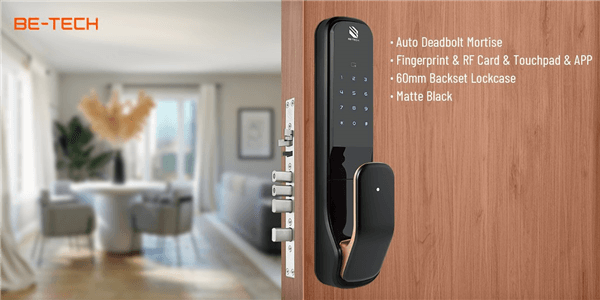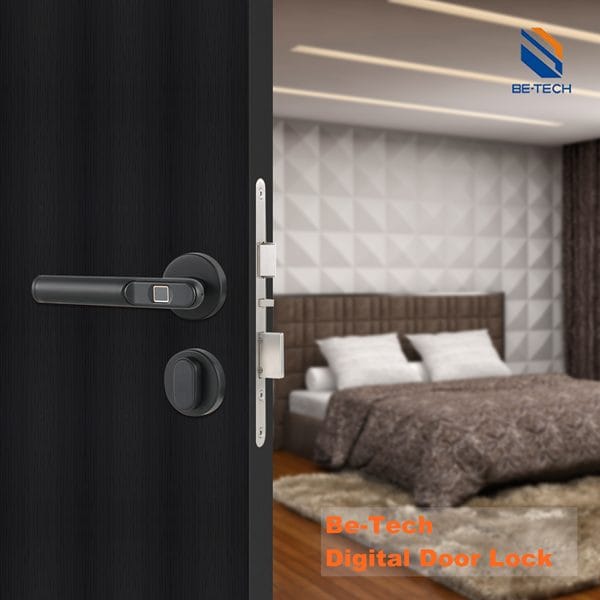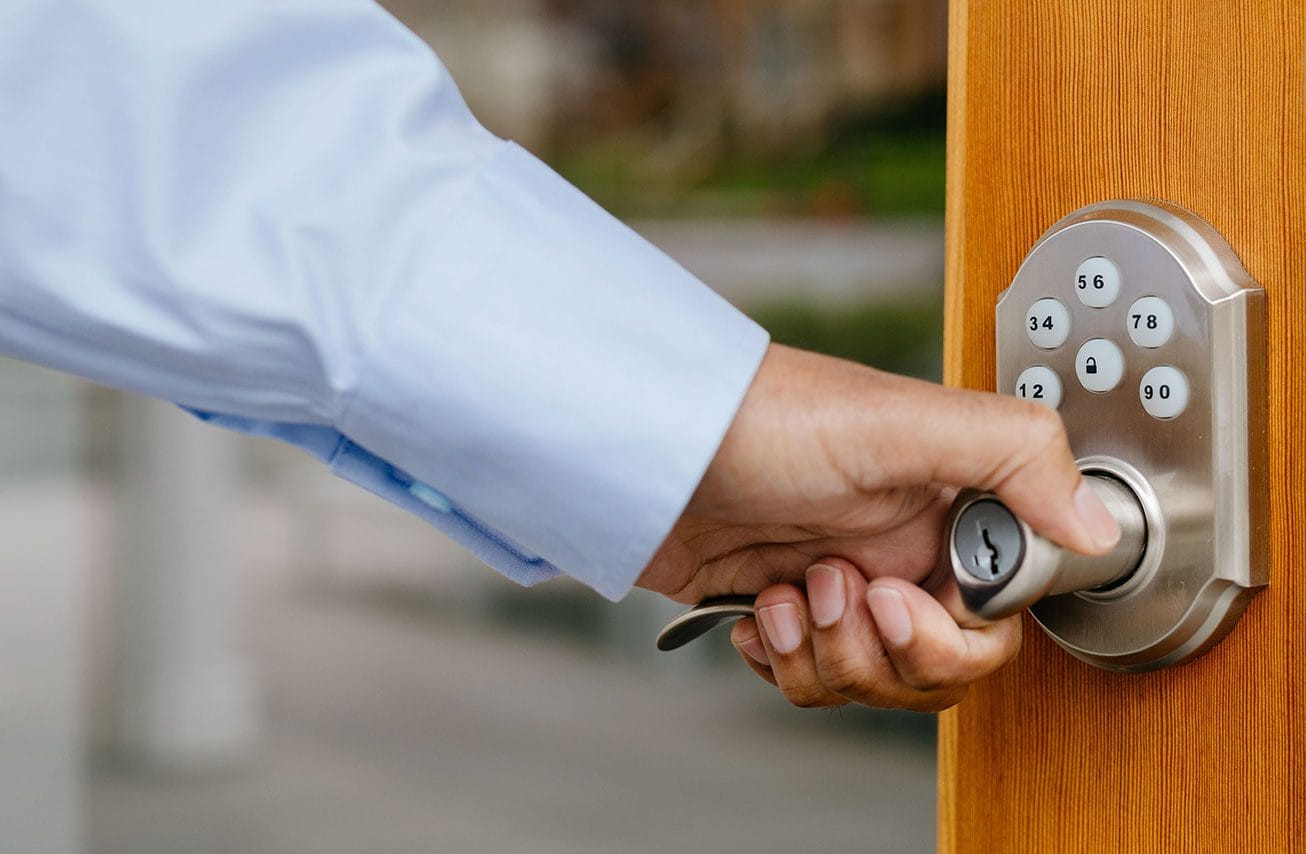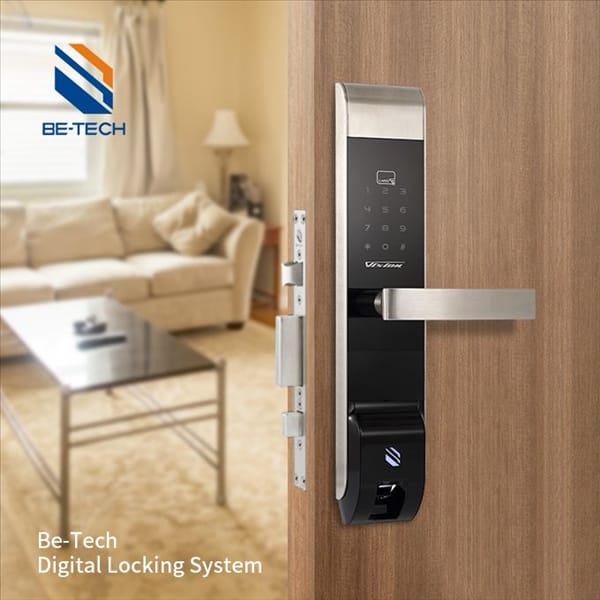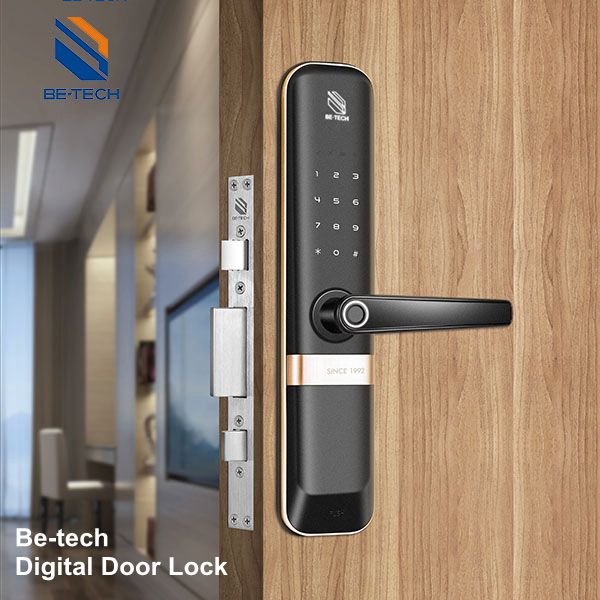In the competitive hospitality landscape, hotels are constantly seeking ways to enhance security, streamline operations, and elevate the guest experience. A critical aspect of achieving these goals lies in adopting cutting-edge technology, particularly in the realm of hotel door lock systems.
The global smart lock market is experiencing significant growth, with projections indicating that a substantial portion of U.S. apartments will feature connected devices, including smart locks, by 2025. This trend is rapidly influencing hotels as well, driving the adoption of hotel smart lock systems to enhance guest experiences and ensure safety. Hotel smart locks have emerged as a game-changer, providing a secure and convenient alternative to traditional key-based systems. By embracing smart lock technology, hotels can significantly improve guest satisfaction, optimize operational efficiency, and strengthen their overall security posture.
The Importance of Hotel Security Door Locks
Why Do Hotel Security Door Locks Matter?
Hotel security door locks are the first line of defense against unauthorized access, safeguarding both guests and property. In an era where security breaches are a growing concern, investing in robust locking systems is not merely a precaution but a necessity. Guests increasingly prioritize safety when choosing accommodations, with a significant percentage of travelers considering a hotel’s security measures a top priority during the booking process.
Legal and Financial Implications of Security Breaches
Beyond reputational damage, hotels face serious legal and financial consequences in the event of security breaches. Data breaches involving guest information can lead to hefty fines and lawsuits. Additionally, hotels may be held liable for theft or personal injury resulting from inadequate security measures.
Regulations and Industry Standards
Various regulations and industry standards, such as the Payment Card Industry Data Security Standard (PCI DSS), mandate that hotels implement stringent security measures to protect sensitive information. Failure to comply with these standards can result in penalties and reputational damage.
Understanding Hotel Smart Lock Systems
A hotel smart lock system is more than just a replacement for traditional keys; it’s a technological leap in managing guest access and security. These systems leverage advanced technologies, including:
- RFID Hotel Door Locks: RFID locks use keycards embedded with RFID technology, offering quick and efficient check-in experiences. The technology is highly secure, making it difficult for unauthorized individuals to replicate access cards.
- Mobile App-Based Locks: Mobile app integration enables guests to unlock doors with their smartphones. Mobile app hotel locks enhance convenience and reduce the risk of lost keys.
- Biometric Hotel Locks: Biometric locks, employing fingerprint or facial recognition, provide a heightened level of access control. While requiring a higher initial investment, they ensure only authorized individuals can enter specific areas.
Integration with Hotel Management Systems
Smart locks seamlessly integrate with Property Management Systems (PMS), facilitating efficient guest management and room assignments. This integration enables:
- Automated Check-In/Check-Out: Smart locks can automate the check-in and check-out process, reducing wait times and improving guest satisfaction.
- Personalized Access Control: Hotels can customize access privileges based on guest profiles, granting access to specific areas, such as VIP lounges or fitness centers.
- Real-Time Room Status Updates: PMS integration provides real-time updates on room occupancy, allowing housekeeping and maintenance staff to optimize their workflows.
- Guest Request Management: Smart locks can be integrated with guest request systems, allowing guests to request services, such as room service or extra towels, directly through a mobile app.
Key Benefits of Implementing Hotel Smart Lock Systems
Enhanced Guest Experience
- Seamless Check-In: Smart locks allow guests to bypass the front desk and access their rooms directly upon arrival. This convenience can significantly enhance the guest experience.
- Keyless Entry: Eliminates the need for traditional keys, offering guests the convenience of using smartphones or keycards for entry.
- Personalized Access: Hotels can customize access privileges based on guest profiles.
Increased Security
- Advanced Authentication: Smart locks utilize multiple authentication methods, including RFID, mobile credentials, and biometrics.
- Real-Time Monitoring: Hotel staff can track access and unauthorized entry attempts.
- Encryption: Protects guest data and access information.
- Audit Trails: Tracks access history for security monitoring.
Operational Efficiency
- Streamlined Check-In/Check-Out: Reduces wait times at the front desk, freeing up staff for other tasks.
- Remote Management: Hotel staff can manage guest access remotely, addressing lock-related issues without physically visiting each room.
- Automated Notifications: Smart locks can automate notifications for housekeeping and maintenance, ensuring timely responses and improved workflows.
Cost-Effectiveness
- Reduced Key Management Costs: Eliminates the need for physical keys and re-keying expenses.
- Energy Savings: Integration with hotel management software allows for occupancy-based adjustments to room settings, contributing to sustainability efforts.
Choosing the Right Hotel Smart Lock System
Selecting the right electronic locking system for hotels requires careful consideration of various factors:
Checklist of Key Features and Considerations:
| Feature | Description |
|---|---|
| Security Features | Multiple authentication methods, real-time monitoring, encryption technology, audit trails |
| User-Friendliness | Keyless entry options (smartphone access, RFID key cards), intuitive design for both guests and staff |
| Integration | Seamless integration with existing property management systems, centralized control over all locks |
| Cost | Initial investment vs. long-term savings, flexible pricing options, consider total cost of ownership, including installation, maintenance, and potential savings. |
Vendor Selection
Partnering with a reputable digital hotel locking system manufacturer is crucial. Consider factors like:
- Reputation and Experience: Choose a vendor with a proven track record in the hospitality industry.
- Customer Support and Post-Sale Service: Ensure the vendor provides reliable support and ongoing maintenance services.
- Customization Options: Look for vendors that offer customizable solutions tailored to specific hotel needs.
- Quality Assurance: Verify that products undergo rigorous testing and quality assurance processes.
Addressing Concerns About Smart Lock Security
Data Privacy
Choose smart lock systems that prioritize data privacy. Ensure the vendor has robust security protocols to protect guest information and complies with relevant data protection regulations.
Vulnerability to Hacking
Look for locks with advanced security features, such as encryption and multi-factor authentication, to mitigate the risk of hacking. Regular software updates are essential to address potential vulnerabilities.
Backup Options
Inquire about backup options in case of power outages or system failures. Many smart locks offer backup access methods, such as physical keys or emergency power sources.
Future Trends in Hotel Smart Lock Technology
The future of hotel smart lock technology promises even greater advancements, including:
- Artificial Intelligence (AI) Integration: AI-powered locks can analyze guest behavior and patterns to detect potential security threats.
- Personalized Security Protocols: Locks could adjust security measures based on guest preferences and risk profiles.
- Biometric Authentication Advancements: Improved accuracy and speed of fingerprint and facial recognition technology.
Impact on Hotel Security and Guest Experience:
These emerging trends have the potential to revolutionize hotel security by enhancing threat detection and prevention capabilities. Personalized security protocols will cater to individual guest needs, improving comfort and satisfaction.
Conclusion
Investing in hotel smart locks is no longer a luxury but a strategic imperative for modern hotels. By embracing this technology, hotels can elevate security, streamline operations, and create a more convenient and enjoyable guest experience.


